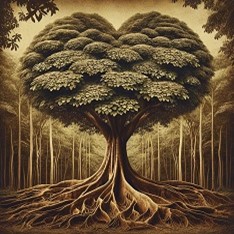Originally published on genealogyathearts.blogspot.com on 28 Apr 2016.
A friend recently asked me how I knew I had crossed the line between a hobbyist and a professional genealogist. That was an interesting and thought provoking question!
I began in genealogy like most, focusing solely on personal research. That narrow view is fine initially but limits the level that one can reach, even as a hobbyist. I didn’t gain a world view approach until I expanded out of my warm fuzzy world and broadened my experiences.
Reading journals was a big step in the journey. At first, I only read articles that related to the geographical area and time period in which I was focused. Then called the Chicago Historical Society, I loved the articles in their Chicago History Magazine. I remember reading an article about Graceland Cemetery and thinking, I have people buried there, maybe they will be mentioned. One day it just hit me that it doesn’t matter if the article is about an area I’m actively searching or not, it’s the TECHNIQUE, LOGIC, and PROCESS mentioned in the articles that are the most beneficial.
I wasn’t a member of any professional organizations because I had limited time and money. I read the journals at my local library while my kids were either in story time and later, while they were doing their own school required research reports. I guess I’m lucky to be old enough to still remember card catalogues and having to physically go somewhere to research instead of just turning on Cortana or Siri! That background allowed me to understand the importance of continuing to search for original sources.
While in the library, I noticed flyers for various local organizations that publicized upcoming events. It was definitely difficult to fit into our busy schedule while working full time and caring for children and elderly parents. I tried to select one activity a quarter and those that I could bring the family along with me. I would love to tell you that this fostered the love of genealogy and history into my children but it didn’t. They are STEAM folks all the way! I console myself in that I did provide a well rounded education and maybe they’ll take an interest when they’re older.
The internet allowed me to broaden my horizons and collaborate with others. That expanded my knowledge base and gave me a sounding board with others who were passionate. It also helped a great deal that they could critically appraise my work.
I love problem solving and helping others so it wasn’t long before co-workers, friends and neighbors started asking me for help. I believe in the saying, “Each One Teach One” and by doing so, I became more refined in my own skills. I took my best practices from the education field and applied it to genealogy.
Word spread and that led to paying customers. Luckily, this occurred at the time my kids turned into adults so I was able to devote more time to perfecting my craft. I decided to join professional organizations and took continuing education classes. I traveled to research facilities and picked the brain of other professionals. In retrospect, I believe when I started to strictly adhere to the Genealogy Standards I was no longer a hobbyist.
This was a long slow process and very different from my first career in which I was considered a “professional” immediately after earning my degree. Perhaps that’s why I so love the field of genealogy – it simmered over time and like fine wine, got better with age.


